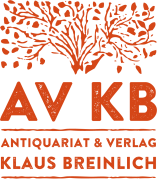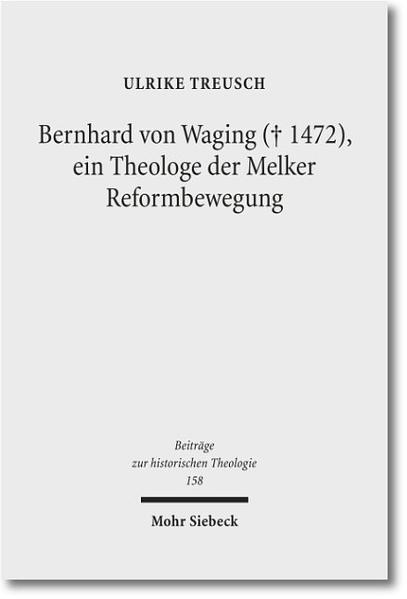TREUSCH,U., Bernhard von Waging (+ 1472), ein Theologe der Melker Reformbewegung
Bernhard von Waging (+ 1472), ein Theologe der Melker Reformbewegung. Monastische Theologie im 15. Jahrhundert?. 1. Aufl. Tübingen, Mohr Siebeck, 2011.
XIX, 356 S. Leinen. (Beiträge zur historischen Theologie, 158). ISBN 9783161508424.
Ulrike Treusch fragt anhand von Person und Werk Bernhards von Waging († 1472) nach der monastischen Theologie im 15. Jahrhundert. Bernhard von Waging aus dem Kloster Tegernsee war einer der bekanntesten Vertreter der benediktinischen Reformbewegung von Melk. Er wirkte nicht nur als praktischer Reformer, sondern vor allem als Autor theologischer Reformschriften. Auch seine Korrespondenz mit Nikolaus von Kues und Nikolaus von Dinkelsbühl zeigt sein Anliegen einer Kloster- und Kirchenreform. Die Autorin untersucht Bernhards theologische Schriften in ihrem zeitgenössischen Kontext und in der Rezeption scholastischer wie monastischer Theologie. Sie legt mit dieser Arbeit die erste Monographie zu Bernhard von Waging vor und bietet aus der Untersuchung auch unedierter lateinischer Schriften eine neue Perspektive auf die Reformdiskussion des 15. Jahrhunderts und die spätmittelalterliche monastische Theologie.
Order Number: 2370VB
Fixed Retail Price: EUR 119,--

